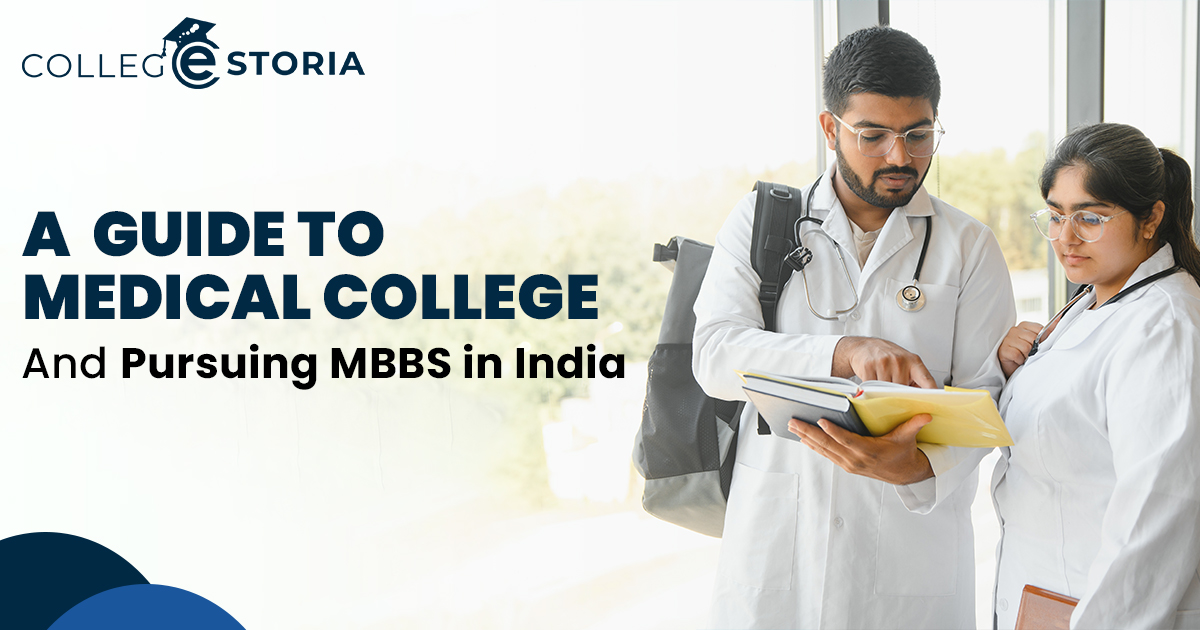A Guide to Medical College And Pursuing MBBS in India
India is a top destination for medical education, offering globally recognized institutions, affordable fees, and diverse clinical exposure. MBBS Admission in India opens doors to a rewarding career in medicine. This guide provides in-depth insights into the admission process and what it takes to pursue an MBBS degree in the country.
Why Choose India for MBBS?
1. Global Recognition of Degrees
Medical colleges in India are recognized by prestigious global organizations like the World Health Organization (WHO) and are included in directories such as the International Medical Education Directory (IMED). Graduates are eligible for licensure examinations worldwide, including USMLE, PLAB, and FMGE.
2. Affordable Education
Unlike many countries where medical education costs can be prohibitively high, India offers world-class education at a fraction of the cost. With government and private institutions offering competitive fee structures, students from diverse economic backgrounds can pursue their dreams.
3. High-Quality Curriculum
Indian medical colleges follow a rigorous curriculum designed to integrate theoretical knowledge with practical clinical exposure. The curriculum is frequently updated to meet global standards and is monitored by the National Medical Commission (NMC).
4. Diverse Clinical Exposure
India’s large population and variety of healthcare needs allow students to gain hands-on experience in diagnosing and treating a wide range of medical conditions. This practical exposure equips graduates with the skills to adapt to complex healthcare environments worldwide.
Eligibility for MBBS Admission in India
To pursue MBBS in India, students must meet specific eligibility criteria:
- Academic Qualification: A minimum of 50% marks in Physics, Chemistry, and Biology in the 12th standard (for general category students).
- Entrance Exam: Qualifying the National Eligibility cum Entrance Test (NEET) is mandatory for admission.
- Age Limit: Applicants must be at least 17 years old at the time of admission.
Admission Process for MBBS in India
The process of securing admission into an MBBS program is competitive and systematic:
1. Qualify NEET
NEET is the gateway for MBBS admissions in India. It assesses students’ aptitude in science subjects and their readiness for medical education.
2. Counseling Rounds
Admission is conducted through centralized counseling by state or national authorities based on NEET ranks. Students can choose their preferred colleges during these rounds.
3. Document Verification
Applicants must provide essential documents such as academic certificates, NEET scorecards, identity proof, and category certificates (if applicable) during the verification process.
Top Medical Colleges in India
India is home to some of the most prestigious medical institutions that offer exceptional education and training facilities.
Leading Institutions In India:
- All India Institute of Medical Sciences (AIIMS): Known for excellence in academics and research.
- Christian Medical College (CMC), Vellore: A hub for innovation and holistic medical training.
- Kasturba Medical College (KMC): A hub for advanced medical training.
- Maulana Azad Medical College (MAMC): Renowned for clinical exposure and top-tier faculty.
Financial Aspects of Studying MBBS in India
1. Tuition Fees
- Government Colleges: The fees range between ₹1,00,000 and ₹5,00,000 for the entire course.
- Private Colleges: Fees can range from ₹15,00,000 to ₹50,00,000 depending on the institution.
2. Scholarships
Various state governments and organizations offer scholarships to meritorious and economically weaker students. Some examples include:
- Central Sector Scheme of Scholarship for College and University Students.
- Merit-based and minority-specific scholarships by state governments.
Challenges Faced by Medical Students
While the rewards of pursuing MBBS in India are immense, students may face challenges such as:
- High Competition: Limited seats in premier institutions lead to intense competition.
- Stress Management: Balancing academics and clinical responsibilities can be overwhelming.
- Financial Strain: The cost of private colleges may be high for some families, requiring financial planning or loans.
Future Prospects After MBBS
Completing an MBBS degree in India opens various career pathways:
- Postgraduate Specializations: Pursue MD/MS in fields like cardiology, pediatrics, or surgery.
- Research Opportunities: Engage in medical research and contribute to advancements in healthcare.
- Global Practice: Qualify for exams like USMLE or PLAB and work internationally.
- Government Services: Serve in public health systems or as a medical officer in government setups.
Tips for Aspiring MBBS Students
- Plan Ahead: Understand the admission process and eligibility requirements early.
- Stay Consistent: Regular study and practice are key to cracking NEET.
- Seek Guidance: Professional counseling can help streamline your efforts and maximize success.
- Prioritize Self-Care: Mental and physical well-being are essential during preparation and medical training.
Pursuing MBBS in India is a life-changing decision that combines rigorous academic training with practical exposure. With dedication and the right guidance, students can overcome challenges and build successful careers in medicine.
Start Your Medical Journey with Confidence
Your dream of a successful medical career is closer than you think. With over a decade of expertise, Collegestoria has guided countless students to secure seats in India’s top medical colleges. Let us turn your aspirations into achievements.
Your future in medicine starts here—let’s make it extraordinary!
